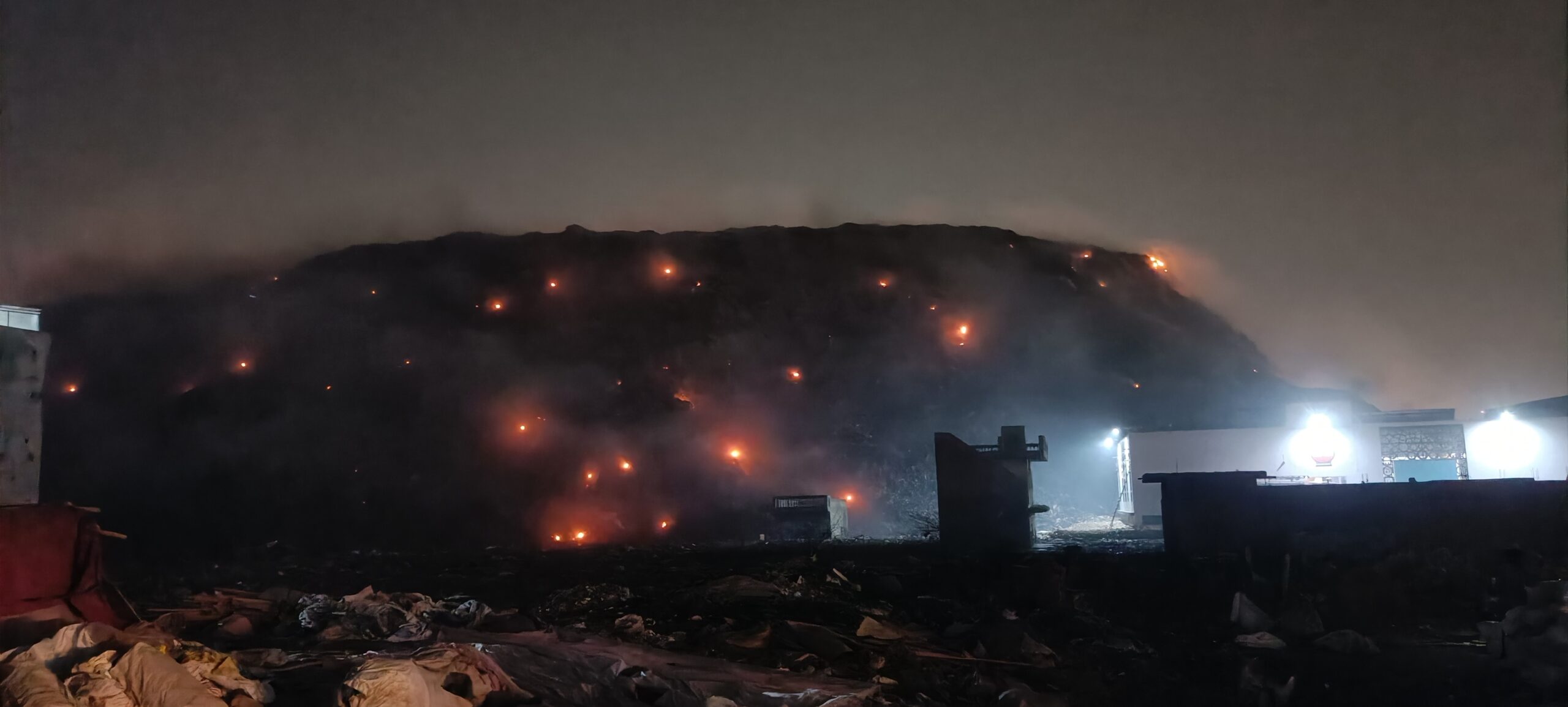Around 24 fire tenders of the Delhi Fire Department are working round the clock to douse the fire. Residents living near the landfill site are now living in a gas chamber. The smoke can be smelt from as far away as Azadpur.
“Last May, this smoke killed my mother-in-law. This time, it is even bigger”, says Anjali, holding her five-month-old daughter Khushi.
Anjali shifted to Bhalswa with her husband two years ago but now regrets her decision. “I can’t breathe. There is no relief even inside the house, let alone outside. My baby girl has been crying for the last three days and I can see that she has a sore throat and eye problems. I pray to God that this fire is doused as soon as possible”, says Anjali.
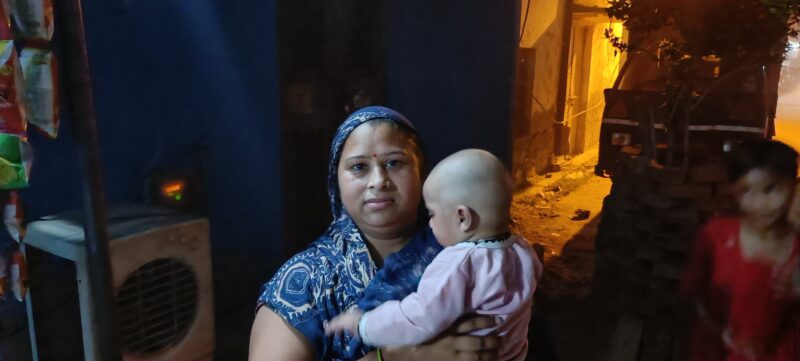
Pooja, who is living in the locality since 1995, is a bit jittery because her house is just around 70 metres from the site that is burning like hell’s fire.
“This year’s fire is worse, though every summer season brings this trouble for us”, says Pooja.
The fire brigade has asked the people living in Block C of the locality to move out. The proximity of the burning site and airflow towards Blocks A and C make it a health hazard to residents.
“People from the fire department came to our door and asked us to vacate this area. Where will we go, where will we stay?”, asks Brijesh Kumar, a car mechanic.
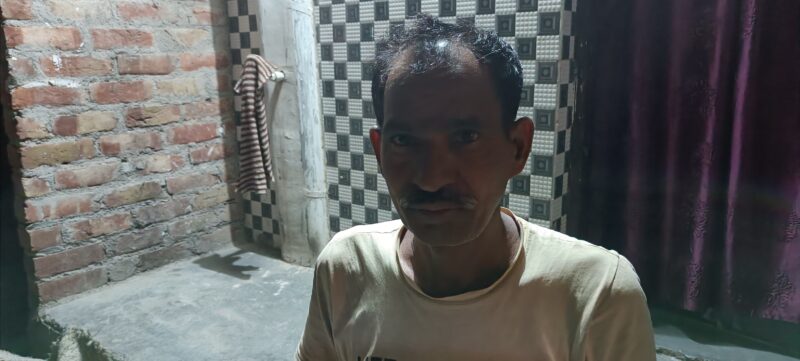
Children and senior citizens are most affected by the toxic smoke. Burning eyes, shortness of breath and sore throat are the most common symptoms they experience. Krishna, a student of Class 6 in the North Delhi Municipal Corporation (NDMC) school Prashant Vihar, says he is unable to study.
“For the last three days, our house has been full of smoke. I can’t concentrate on my homework. Sometimes, my eyes burn and tears flow down my cheeks,” says Krishna.
While they wait for the fire to be brought under control, Delhi’s AAP government on Thursday imposed a fine of ₹50 lakh on the NDMC, which is ruled by BJP.
Locals lament that both summer and monsoon seasons bring trouble for the area. According to locals, when it rains, garbage from the landfill slides down and enters their houses. “But what can we do now? These are our homes. Where will we go if we leave them?”, asks Lalita, a resident of Block C.
Kajal is a teacher at Sikha Valley School, which is located nearby. She narrated to Patriot how the smoke has affected the health of students as well as teachers.
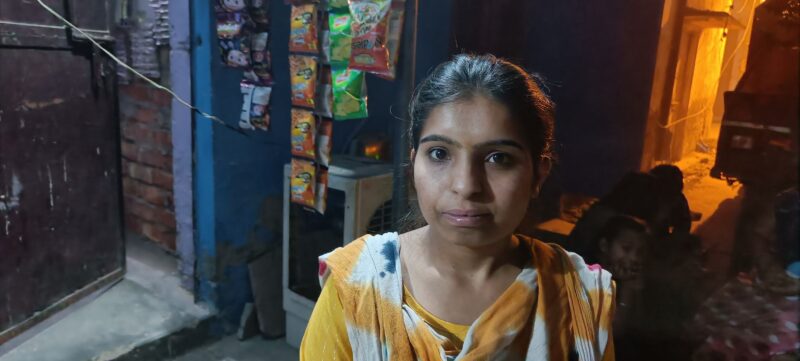
“Students are coughing continuously in class, and putting on masks has made it more difficult for them. Teaching is a job where you need to speak continuously, but breathing problems and sore throat are making it hard for us to teach”, says Kajal.
“When I was a kid, this was an empty patch of land. But now, the garbage pile has reached near our homes,” she adds.
Keeping local elections in mind, politics has started from both sides. On Friday, Delhi Commission for Women chief Swati Maliwal summoned officials from NDMC. According to media reports, the women’s panel has asked for details of the expenditure made by the corporation to clean this site in the last 15 years.
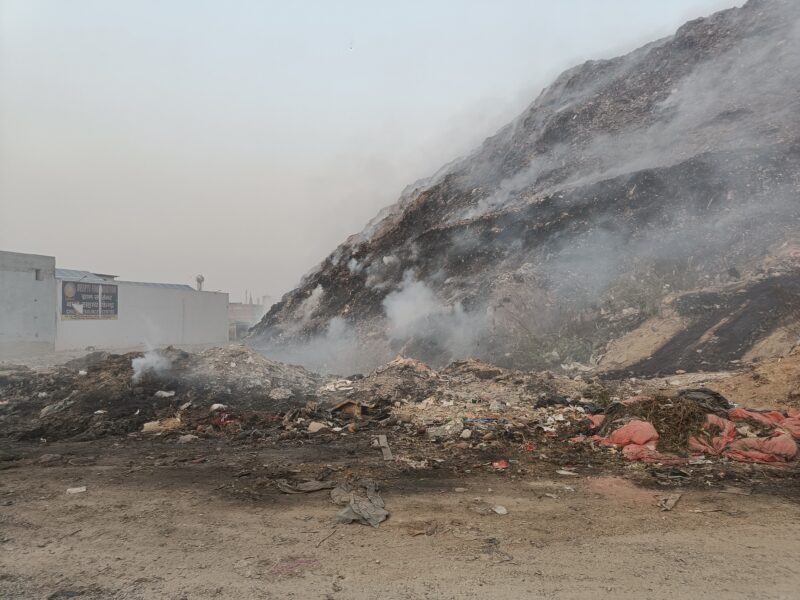
While talking with Patriot on 28 April, Gobind Singh Meena, Station Officer at Delhi Fire Service said, “For the last four days, we are working in eight-hour shifts to douse this fire. Eight fire tenders are being used in three shifts to control the fire. In two or three days, we will control the situation and the fire will be doused”.
It’s been five days since, and the site continues to burn as fire services try to douse the fire with all resources at hand.
“This garbage pile produces methane gas which is an inflammable gas. We are using both water and foam to control the fire”, added Meena.
People in the locality are disillusioned with politicians. They say that they are fed up with all the false promises. Swami Sarthi, who is a priest at the local Shiv temple, is in his eighties. He blames both the government and the administration.
“I am taking medicines but nothing is working on me. I am unable to swallow food. I have been living here for the last 10 years but this fire is terrifying. No leader wants to solve this problem. All they want is our vote”, complains Sarthi.
According to him, the government should use aeroplanes to pour water on the burning heap. “Then it will be doused”, says Sarthi.
According to a report by First Post, the Bhalswa landfill was set up in 1984 and now stands over 60 metres tall and 50 acres wide, which roughly translates to 50 football fields and a 17-storey building. The raging fire has directly impacted the pollution level of the city.
The area near the landfill has recorded ‘very poor’ air quality; before the fire, it was ‘poor’. Apart from Bhalswa, Ghazipur and Okhla landfills are the other major dumping sites of the city.
For more stories that cover the ongoings of Delhi NCR, follow us on:
Instagram: https://www.instagram.com/thepatriot_in/
Twitter: https://twitter.com/Patriot_Delhi
Facebook: https://www.facebook.com/Thepatriotnewsindia

